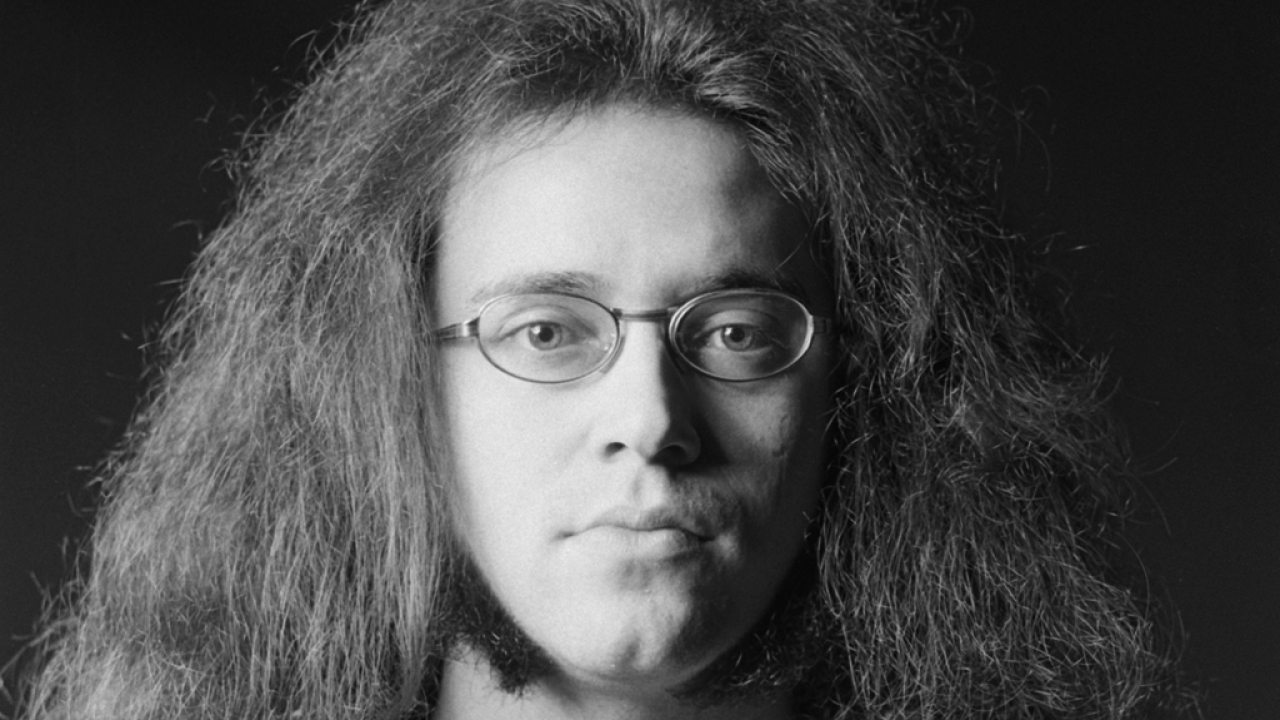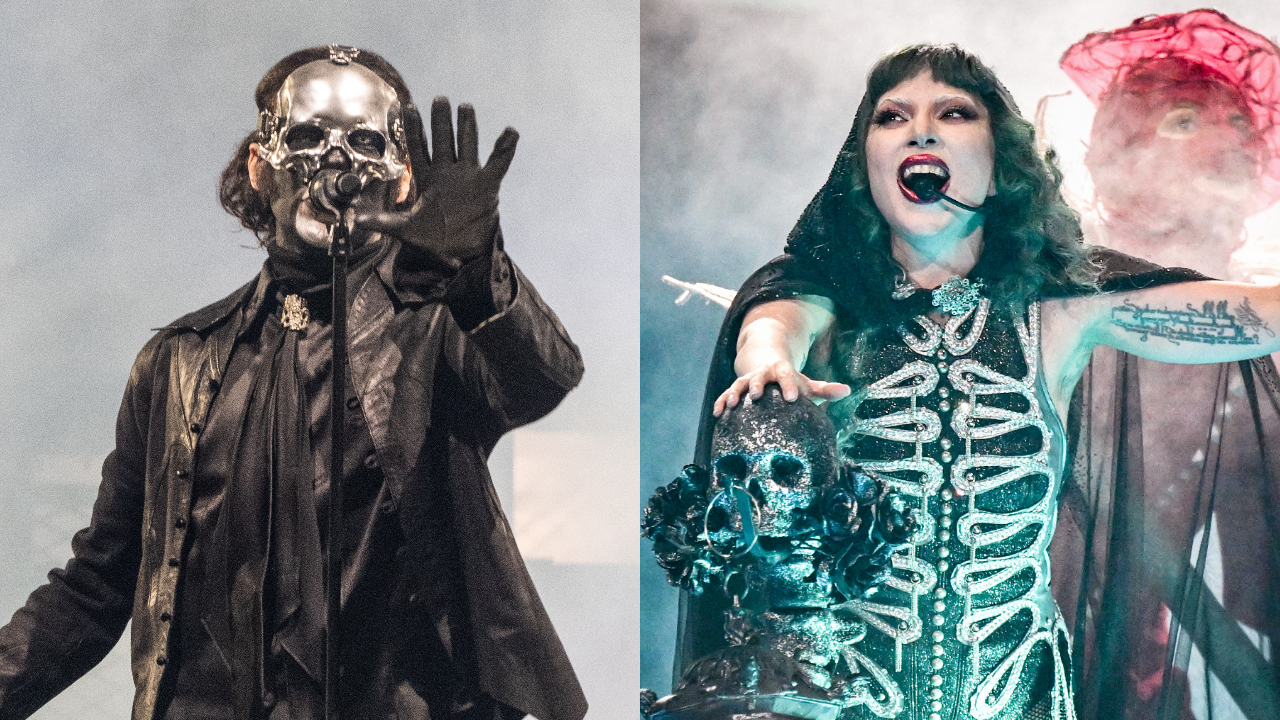The Real Rock & Roll Hall Of Fame: Ian Paice
Founder, drummer, bedrock of Deep Purple Mks I through VIII.

On April 18, Lou Reed, Green Day, Ringo Starr, Joan Jett and others will be inducted into the Rock And Roll Hall Of Fame, joining everyone from The Beatles, the Stones, Led Zeppelin, Pink Floyd and The Who to Kiss, Metallica, ZZ Top and, er, ABBA. But what about all the bands this US institution has overlooked, ignored or wilfully snubbed over the years? The giants and innovators of rock, prog, punk, blues and more who weren’t deemed important enough, cool enough or American enough to warrant entry through those hallowed portals. Nearly 50 years after forming, Deep Purple are the greatest band not to be in the official Hall Of Fame. They are one of a diminishing handful of bands who formed in the late 60s who are still active today, who are not content to rest on their laurels and who still exist in a meaningful and creative way. While many of their peers are content to play the chicken-in-a-basket circuit – their tour posters emblazoned with monochrome mug shots of how they looked back in their bushy-tailed heyday – Purple have matured like a fine, expensive wine (a Sweet Burgundy, as their former guitarist, the late, great Tommy Bolin, might have it). From 1968’s Shades Of Deep Purple to 2013’s NOW What?!, Purple’s passage through time resembles a mountain range of breathtaking highs and turbid lows. Via a series of interviews with every key member past and present, we celebrate Purple’s extraordinary, multi-decade career. We highlight the radically different personalities of the musicians who have impacted on the band, and marvel at how these contradicting characters were able to gel musically. We examine the mysterious – and occasionally devious – workings of this at times most volatile of bands. We analyse the contributions of alleged bit-part players including Nick Simper, Joe Lynn Turner and the aforementioned Bolin. Plus much more besides. This is Deep Purple dissected, deconstructed and laid bare. (Oh, and we only mention Smoke On The Water once.)
What are your views on the demise of Deep Purple Mk I?
I was just a kid then, enjoying being in the sweet factory. But Ritchie and Jon felt that Rod Evans’s voice was limited in what it could do. As the music became slightly harder-edged we needed a voice with the ability to do slightly more extraordinary things. Rod just couldn’t go there. He had a really nice ballad voice, and he could get away with some rock’n’roll stuff but it wasn’t natural for him. So it had to change.
How different a person were you in Purple’s early days?
All I had was my drums and a few quid in my pocket. The great bonus was that I was able to travel the world. I had no personal encumbrances; I had no girlfriend, no wife, no kids. I didn’t have a house until seventy-three or seventy-four. When your life is that simple, nothing surprises you. You just get on with it.
It’s different now. I can’t imagine those times. Trying to remember who that young guy was, even when I see videos of myself playing, or I listen to the old songs… sometimes I just don’t recognise it. Sometimes it’s a complete mystery to me.
Still, you obviously relished being part of Purple’s epic jam sessions.
Sign up below to get the latest from Classic Rock, plus exclusive special offers, direct to your inbox!
I did an interview with a German journalist a few months ago and he said he never thought of us as a rock’n’roll band, he thought we were the loudest jazz band in the world. I understood what he meant. The idea of taking a basic theme and then wandering off in any direction it takes you… that’s a jazz concept. I’m talking about the jazz that came up in the fifties with Miles Davis and John Coltrane, where they would take a theme and fly with it. So that’s what Purple were doing, albeit in a simplistic way. But it was a release from the shackles of three-minute singles.
How much pressure were you under to deliver the next big hit album?
We never thought about it. We were having fun and being allowed by the powers that be in the recording industry to just get on with it. Luckily we kept coming up with these genius pieces of music. The labels were happy because they were making millions of dollars, and the kids were happy because they were hearing something totally new. It was a no-lose situation all the way round.
Francis Rossi once said the thing he remembers most about the seventies was that everything stank.
I think we must have been moving in more exalted circles than Status Quo [laughs].
Describe the highs and lows of being in Purple.
The darkest hour is when you wake up in the morning and you’ve got a rock’n’roll band, then by four o’clock in the afternoon you find you haven’t got a rock’n’roll band. Something’s happened, somebody’s left or been fired. That’s pretty devastating. Your world is turned upside-down and ripped asunder. You also worry about mundane things such as financial security, paying your bills.
Given Purple’s numerous line-up changes, you must have had plenty of dark hours.
Exactly. But they’re hours, not years. As far as highlights, I’d pinpoint the release of Deep Purple In Rock. I remember a little switch going off in my mind, thinking: “Maybe we’ve cracked this. Maybe we’ve found something that is ours and people want to listen to.” That was a pretty amazing feeling.
Does that sort of feeling still keep you going today?
It’s different. We have wonderful baggage; we have a lot of records, we have a lot of songs that people still enjoy hearing. I’m just amazed by the fact that we’re still able to do it after all these decades. I think each of us realises that we do have a finite article here, and one day – hopefully a way off in the future – one day it will stop. So each of us savours every night that we go on stage.
When the end finally comes, how will you feel?
I’ll miss it like hell.
Geoff Barton is a British journalist who founded the heavy metal magazine Kerrang! and was an editor of Sounds music magazine. He specialised in covering rock music and helped popularise the new wave of British heavy metal (NWOBHM) after using the term for the first time (after editor Alan Lewis coined it) in the May 1979 issue of Sounds.

